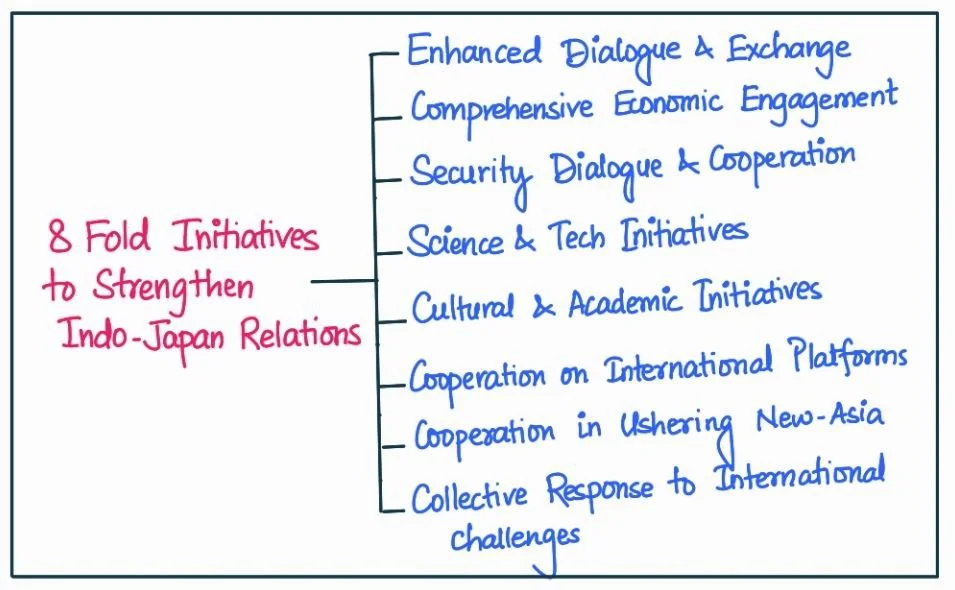Answer:
| Approach:
Introduction
- Brief about economic ties between India and Japan.
Body
- Discuss about the trade impediments and investment challenges between India and Japan.
Conclusion
- Conclude your answer with a futuristics approach.
|
Introduction: India and Japan have strengthened their economic ties in recent years, but the potential for growth in this area remains largely untapped. Several policy constraints have hampered the expansion of bilateral economic cooperation between the two countries.
Body:
- Economic ties between India and Japan have witnessed significant growth. The two nations have made considerable strides in enhancing bilateral trade and investment. Several collaborative initiatives, including joint ventures and technology transfers, have been established, contributing to the strengthening of economic cooperation.
- High-level visits and dialogues have facilitated closer engagement, leading to increased business collaborations and exchange of expertise. Despite this progress, there remains substantial untapped potential for further expanding and deepening the economic ties between India and Japan.
- Tariff and Non-Tariff Barriers: India and Japan have imposed high tariffs and non-tariff barriers on each other’s goods and services, which is a major impediment to trade. These barriers make the imports and exports between the two countries expensive and uncompetitive. This has resulted in a low volume of trade between the two countries.
- Regulatory Hurdles: Japan has been facing difficulties in investing in India due to its complex and often opaque regulatory framework. This has hindered Japan’s investment in India’s infrastructure and manufacturing sectors.
- Taxation: The tax system in India is complex and cumbersome, which discourages Japanese businesses from investing in India. The Indian government has been trying to simplify its tax regime, but it has not been able to completely address the issue.
- Intellectual Property Rights (IPR): Japan has been concerned about the lack of effective IPR protection in India. India has been accused of not doing enough to protect foreign investors’ IPR, which has led to a lack of confidence among Japanese investors.
- Infrastructure: India’s infrastructure is not up to the mark, and this is a major constraint for Japanese investors. Japan has been investing in India’s infrastructure, but the progress has been slow due to bureaucratic hurdles.

Conclusion:
These constraints and unlock the full potential of their economic ties, India and Japan need to work towards enhancing their policy coordination and streamlining their regulatory frameworks. This will require a concerted effort from both sides to address the existing challenges and create a more conducive environment for bilateral economic cooperation.
